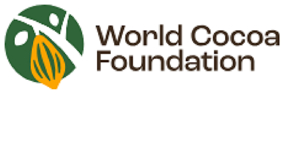 World Cocoa Foundation (WCF) logo
World Cocoa Foundation (WCF) logo
The World Cocoa Foundation (WCF) is leading the cocoa sector’s drive towards consistent reporting with the launch of the first-ever greenhouse gas (GHG) accounting standard for cocoa. Developed in collaboration with Quantis, a leading environmental sustainability consultancy, with support from industry leaders, the GHG Accounting Standard Methodology provides the cocoa industry with a unique, sector-wide approach to measuring, reporting and mitigating GHG emissions.
The new standard is designed to help companies in the cocoa sector meet their Scope 3 reporting obligations. Covering topics like land use change, land management, carbon removals and rebaselining, it empowers cocoa companies to consistently report to the Science Based Targets Initiative (SBTi) and supports reporting in accordance with the GHG Protocol (GHGP) Land Sector and Removals Guidance draft (with the final to be released later this year), as well as future mandatory legislation.
Michael Matarasso, Impact Director and Head of North America, WCF, said: “Until now there has not been a consistent and detailed way for the cocoa industry to accurately report greenhouse gas emissions. Companies have struggled with multiple methods that can deliver very different results.
By aligning the cocoa sector around a best practice standard method, we are now streamlining emissions accounting. This will ensure that companies can report the most accurate data, support them to participate fully in climate-related programming and deliver associated financial benefits to farmers who partake in carbon projects.”
Alexandra Stern, Land & Agriculture Lead, Quantis US, said: “This new standard is the product of a collaborative effort which integrated insights from key industry stakeholders to effectively address the sector’s unique challenges. By establishing a unified framework, it equips companies with a practical, standardized approach to emissions reporting, fostering greater transparency and driving meaningful climate action.”
More aligned cocoa emissions reporting
The cocoa supply chain has long faced challenges in emissions reporting due to its complexity and diverse structure, which includes:
– Land use complexity: Deforestation and land use change happening in cocoa supply chains, especially in fragmented smallholder contexts, demand rigorous and precise accounting.
– Indirect supply chain uncertainty: Many cocoa supply chain activities are poorly understood, particularly in the indirect supply chain.
– Inconsistent reporting: Despite the adoption of frameworks like the GHGP and SBTi, varying approaches to emissions tracking hinder comparability and progress.
A unified approach: the GHG Accounting Standard Methodology
Designed for cocoa companies across the value chain, the GHG Accounting Standard Methodology provides a step-by-step guide for establishing and achieving GHG emission reduction targets. To ensure swift uptake, it provides minimum requirements aligned with the GHGP, as well as recommendations for those looking to go further. It includes:
-Clear definitions for traceability and carbon sampling
-Guidance on land use change emissions, land management emissions and carbon removals
-Best practice recommendations for reporting in accordance with the GHGP’s Land Sector and Removals Guidance
– A standardised approach for Scope 3 emissions, ensuring consistency and comparability across the industry
– Support for rebaselining corporate footprints to reflect more accurate emissions data.
Tilmann Silber, Head of Net Zero, Barry Callebaut, said: “Transparent and accurate reporting is essential in order for sustainable chocolate to become the norm. With its unique position to represent the industry, we welcome WCF’s new accounting standard for cocoa which, when combined with wider GHGP guidance, will move the sector towards actionable, consistent and accurate reporting.
In addition to helping companies meet their own cocoa greenhouse gas emission targets, this industry-wide standard will ensure aligned reporting from the entire cocoa sector and further facilitate collaboration among suppliers and customers.
The GHG Accounting Standard Methodology adds to WCF’s portfolio of methods, tools and guidance designed to support sector-wide comprehensive monitoring and reporting on the most critical cocoa sustainability issues. Its Deforestation Risk Assessment Methodology aims to Standardise how companies evaluate the deforestation risk for all cocoa plots destined for the European Union (EU) market, and its Cocoa Household Income Study (CHIS) creates a standardised approach for measuring cocoa household income and living incomes.
In the meantime, find out why Duncan-Williams cried after seeing Akufo-Addo, Mahama together
